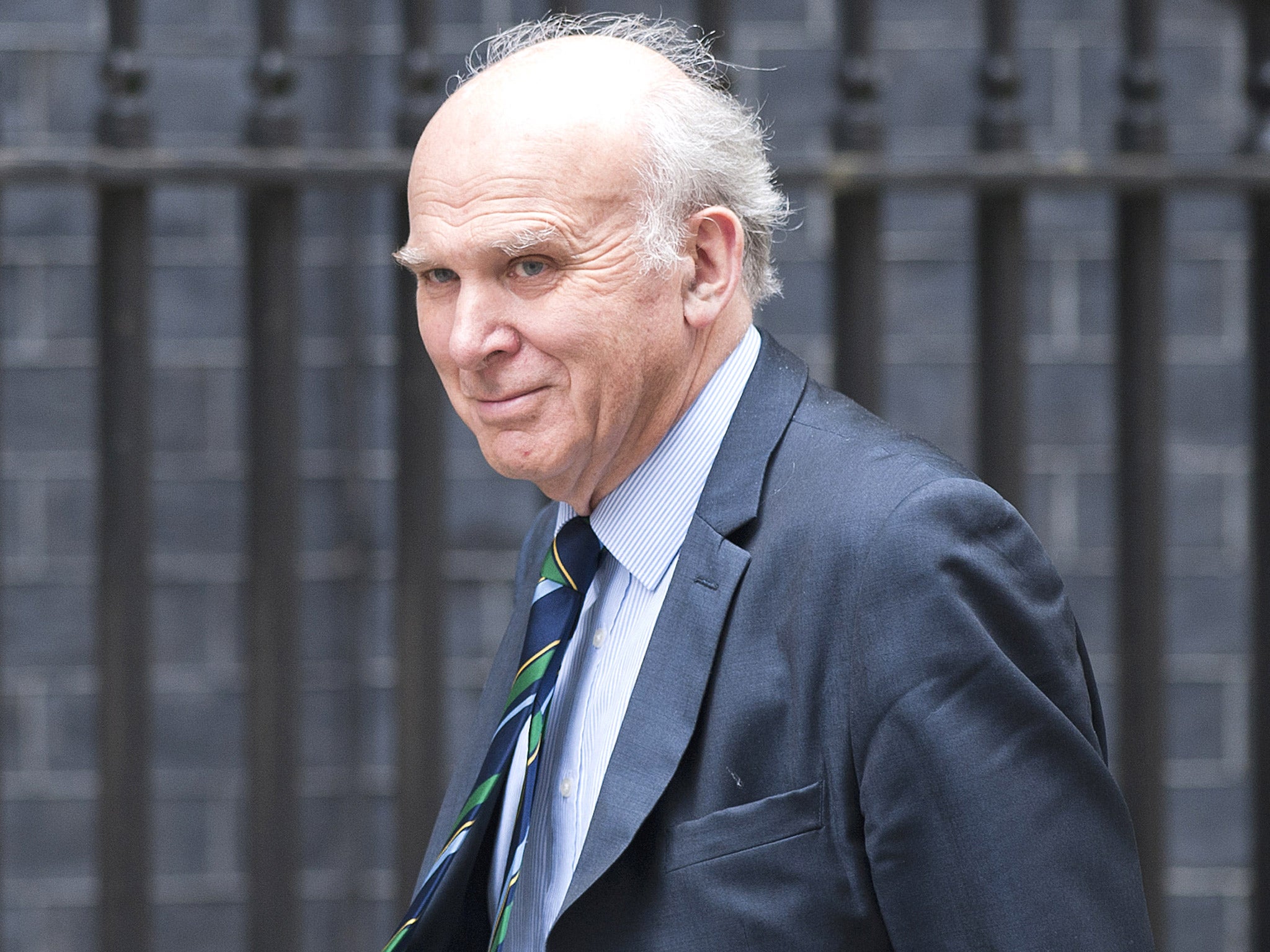‘Zero-hours’ contracts for workers to be reviewed by Coalition
The Business Secretary, Vince Cable, is worried that some are being abused by companies

Your support helps us to tell the story
From reproductive rights to climate change to Big Tech, The Independent is on the ground when the story is developing. Whether it's investigating the financials of Elon Musk's pro-Trump PAC or producing our latest documentary, 'The A Word', which shines a light on the American women fighting for reproductive rights, we know how important it is to parse out the facts from the messaging.
At such a critical moment in US history, we need reporters on the ground. Your donation allows us to keep sending journalists to speak to both sides of the story.
The Independent is trusted by Americans across the entire political spectrum. And unlike many other quality news outlets, we choose not to lock Americans out of our reporting and analysis with paywalls. We believe quality journalism should be available to everyone, paid for by those who can afford it.
Your support makes all the difference.The Government is to review the use of controversial “zero-hours” contracts under which employees are put on standby and not guaranteed a minimum amount of work.
Vince Cable, the Business Secretary, is worried that some companies are abusing the contracts and has asked his officials to review the growth of the contracts in both the private and public sectors. Although he is unlikely to ban them, they could be restricted or workers on them given more protection.
Mr Cable, pictured, told The Independent: “In the past decade, there has been a steady rise in the number of zero-hour contracts. For some these can be the right sort of employment contract, giving workers a choice of working patterns. However, for a contract that is now more widely used, we know relatively little about its effect on employers and employees. There has been anecdotal evidence of abuse by certain employers – including in the public sector – of some vulnerable workers at the margins of the labour market.”
The Business Secretary added: “While it’s important our workforce remains flexible, it is equally important that it is treated fairly. This is why I have asked my officials to undertake some work to better understand how this type of contract is working in practice today.”
The Trades Union Congress has called for the contracts to be outlawed, a move that Labour is considering during its wholesale policy rethink. Mr Cable’s officials will consult business groups and unions during the review.
The Conservatives would not support a ban and Mr Cable will not propose one because some workers prefer to be on call and to work only occasionally. He is prepared to look at safeguards, for example how people employed in this way are treated by the benefits system. One option could be higher tax credits to compensate for periods when they are not called in to work.
According to the Office for National Statistics, the number of “zero-hours workers” has risen from 131,000 to 200,000 since 2007 but the figures are almost certainly an underestimate. Initially, they were introduced in shops, restaurants and hotels but have spread to public services in recent years as public-spending cuts bite. The number in the NHS has risen by a quarter in two years to almost 100,000.
Lord Oakeshott, the Liberal Democrat peer, who has protested over House of Lords staff being put on such contracts, said: “The rapid growth shown in the official figures is probably only the tip of the iceberg. What is really shocking is that people who get not a penny a month don’t show up in the unemployment statistics. A zero-hours contract with zero pay for a month is not really a contract and people on them should count as unemployed.”
The growing political debate over the contracts has echoes of the split between the Conservatives and Liberal Democrats over proposals to dilute workplace rights by Adrian Beecroft, a venture capitalist and Tory donor who reviewed them for Downing Street.
Mr Beecroft proposed a system called “no-fault dismissal”, which allowed bosses to pay off workers without allowing them to claim unfair dismissal. It won the backing of David Cameron and George Osborne but was blocked by Mr Cable.
Liberal Dem-ocrats accused the Tories of trying to bring back “Victorian values”.
Join our commenting forum
Join thought-provoking conversations, follow other Independent readers and see their replies
Comments